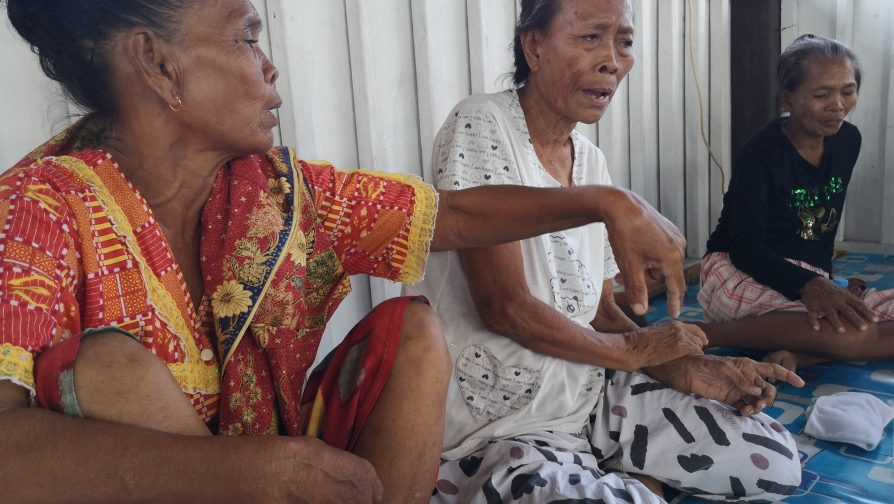Wanita Arajani is 70 years old and without a birth certificate. Her community never saw the importance of having a birth certificate until the Zamboanga conflict broke out in 2013. Wanita herself has never seen the value of having one, until her granddaughter had to present one for school.
The Sama Bajaus form part of the population identified to be at risk of statelessness in the Philippine context. © UNHCR/Y. Palma
At 70, Wanita Arajani has no birth certificate. She is one of more than 2,000 Sama Bajaus in Vale Vista in Barangay Kasanyangan, Zamboanga City who have yet to acquire their birth documents. During a listening session conducted by UNHCR with the community in October 2018, Wanita shared that she did not appreciate the value of having a birth certificate when she was growing up. She added that when she was young, acquiring a birth document was not a norm in their community. They did not see the importance of having one, and they felt that the process of acquiring one would be costly.
For the Sama Bajaus, going to government offices to get a document or avail of services requires extra effort. “We didn’t have the confidence to go to government offices. We don’t know what to do,” said Wanita.
“We are afraid that we’ll be discriminated against because we are Bajaus.”
It was only in 2013 that her perspective on the value of a birth certificate changed. Due to the 2013 Zamboanga conflict, her family was displaced. Men in her family were subjected to security checks but they could not present any proof of identity because they did not have any, not even a birth certificate. It was a turning point for Wanita who came to realize the value that a single paper held. “I did not know that it was that important until I realized how powerful it was to secure us from being identified as militants,” she said.
For months, Wanita and her family lived in the evacuation center. It was there that she gained the confidence to interact with other people for assistance. “One day, a teacher convinced me to send my grandchildren to school. At first, I was hesitant but eventually I did. She also asked me if we had birth certificates. When I told her that we did not, she said that it was important for us to have one because it is a requirement for school. She permitted my grandchildren to enroll but she said that we should get one before they complete their elementary schooling,” she shared.

Wanita (middle) speaks to UNHCR in a listening session conducted with Sama Bajaus in Zamboanga City. Photo © UNHCR/Y. Palma
Since 2016, UNHCR has supported the Philippine Government in conducting a series of studies on the Sama Bajaus as part of the preliminary steps in addressing their statelessness issue. A desk research, validation meetings, and listening sessions with the Sama Bajau communities in Zamboanga and Tawi-Tawi have revealed that the lack of documentation of the tribe poses a lot of protection issues for them. These issues include difficulties in accessing basic services such as education and exercising their freedom of movement, as well as threats to their security.
As the listening sessions were about to conclude, participants were asked if there were still concerns that they wanted to share. Wanita, once very meek and only kept to herself, raised her hand and said, “We hope that we may acquire birth certificates the soonest time possible. If it is not possible to accommodate everyone in the community, we would like our grandchildren to be prioritized.”
There was silence for a while and then she continued with tears in her eyes, “My grandchild will finish her elementary schooling in March 2019. She needs her birth certificate to graduate. I hope that we can have it by then. If that happens, I will be the happiest.”
Share on Facebook Share on Twitter